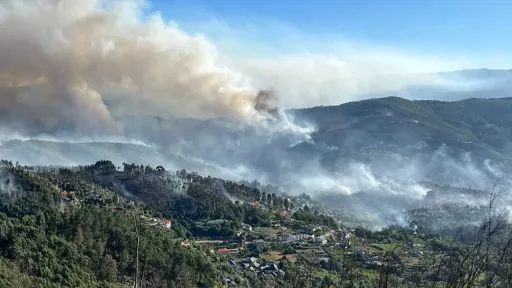Can pipeline diplomacy reduce Russia's influence in the Western Balkans?

What is needed is rather straightforward: Western pressure on the 4 NATO non-recognizers of Kosovo – Greece, Romania, Slovakia, and Spain – to end their obstructionism.
Russia’s leverage over Bosnia and the Balkans does not stem primarily from its weaponization of energy resources but rather from its obstructionism over Kosovo.
The controversy over the construction of the Southern Interconnection natural gas pipeline between Croatia and Bosnia became the new political hot potato in Bosnia and Herzegovina at the beginning of 2024. The project in question is strongly backed by both the United States and the European Union, and the idea to construct it has been around since at least 2009 when Russia cut off gas supplies via Ukraine to the Balkans. However, it was the Kremlin’s full-scale assault of Ukraine in February 2022 that gave utmost urgency to the project. By supporting the Southern Interconnection Pipeline, Western powers aim to reduce Bosnia’s current total dependence on Russian gas and, as such, close off a dangerous opening for Russia. Moscow might use that to destabilize the fragile and deeply divided Balkan country as a way to somehow divert attention from its brutal assault on Ukraine. The pipeline construction faces domestic and regional hurdles, however, and the spoilers have made headlines during the past two months by drawing the ire of the US, especially.
Croatia and Bosnian Croats as spoilers
Domestically, the spoiler is the main ethnic Croat party in Bosnia and Herzegovina, the Croatian Democratic Union (HDZ BiH), and its leader, Dragan Covic. Though the party approved the legislation for pipeline construction in the lower chamber of the parliament of the Bosniak-Croat Federation, which is one of Bosnia and Herzegovina’s two constitutive autonomous entities, the other being Republika Srpska, back in December 2021, it is still refusing to do the same in the parliament’s upper chamber and hence has blocked the entire project up to now. Regionally, however, the real and main spoiler is the ruling HDZ party of Prime Minister Andrej Plenkovic of Croatia, the patron of Bosnian Croats. That both a NATO and EU member like Croatia is effectively blocking a gas pipeline project that the US and EU strongly support should come as no surprise given that Zagreb and Belgrade are not committed to state-level territorial integrity for Bosnia and, as such, do not want the process of energy supply diversification to be led by Bosnian Muslims, the country’s only ethnonational group genuinely committed to its statehood.
The condition HDZ BiH has put forward for unblocking the legislation is that it wants the natural gas pipeline to be operated by a new Bosnian Croat-led transmission system operator company based in the southern city of Mostar, which is the administrative center of the ethnically mixed canton of Herzegovina Neretva, and not by the existing Federation-owned company BH Gas, which is largely controlled and staffed by Bosnian Muslims.
Such a condition recently drew the ire of high-level US officials, whose strongly worded condemnation of Covic underscored the importance the US attached to the pipeline project. In a letter sent to the foreign ministers of Bosnia Elmedin Konakovic and of Croatia Gordan Grlic Radman (who, notably, is himself of Bosnian Croat origin, born in Tomislavgrad in the ethnic Croat canton of Herceg Bosna) this January, US Secretary of State Antony Blinken slammed Covic's justifications as “obvious corruption and self-dealing,” pressuring him and indirectly Croatia to end obstructionism on this matter. Likewise, in a speech at the University of Sarajevo on Feb. 2, James O'Brien, the recently appointed assistant US secretary of state for European and Eurasian affairs, also one of the leading US lawyers involved in drafting the 1995 Dayton Agreement, argued that Dragan Covic’s condition for creating a new company for operating the pipeline was only “for his own political and financial benefit,” calling this “cynicism, against the public interest” and concluding that “Dayton is not the problem; the country’s political leaders are the problem.”
Will the natural gas pipeline serve its aim?
Be that as it may, the recent political infighting among Bosnia’s ethnonational elites over an economically and geopolitically charged issue like the pipeline project should come as no surprise at all in a country where even the most basic services of daily life – such as hospitals, schools, fire brigades, garbage collection services, and so on – are deeply divided along ethnic lines in a system that fully institutionalizes and reifies ethnic cleavages. Western pressure and reassurances to Croatia and Bosnian Croats will likely lead them to end their obstructionism, but all this still begs the question: Even if the Southern Interconnection natural gas pipeline is unblocked and eventually constructed, will this actually serve to reduce Moscow’s influence in Bosnia and more broadly in the Western Balkans?
It will certainly be a positive step but I believe that this still does not address the crux of the matter. Russia’s leverage over Bosnia and the Western Balkans and its potential to stir up trouble there does not stem primarily from Moscow’s weaponization of its energy resources or the special relationship it has with Republika Srpska that constitutes probably the closest thing we have to a Russian client entity in the region. Rather, Moscow’s leverage over the region stems primarily from its obstructionism and blocking of the recognition of Kosovo’s independence. This is also the most important bond that unites Serbian and Russian interests in the region and allows Belgrade to perpetuate instability in Kosovo, Bosnia and Herzegovina, Montenegro and often even in North Macedonia. As such, in order to close off any opening to Moscow to trigger regional instability, apart from plans to reduce regional energy dependence on Russian gas as the Southern Interconnection pipeline discussed here, what is more important, I think, is making Kosovo a NATO member state. What is needed for that is rather straightforward: Western pressure on the four NATO non-recognizers of Kosovo, namely Greece, Romania, Slovakia, and Spain to end their obstructionism on this matter. Amid Russia’s full-scale war on Ukraine, the stakes are too high to ignore this practical course of action.
By Idlir Lika fo AA
The author is an assistant professor of political science at Istanbul’s Ibn Haldun University.







